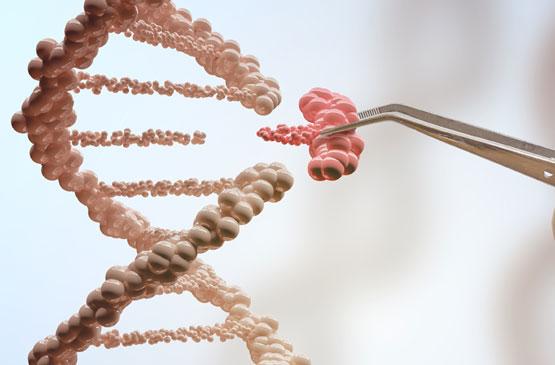The study of Biotechnology deals with the study of biology and its various aspects. Those who are interested in the subject have a great opportunity in the form of the GATE exam. They can further study in one of the most prestigious colleges of India in the field of Biotechnology with the help of a good GATE score.
Table of Contents
1. GATE 2022 Biotechnology Syllabus
GATE 2022 Biotechnology Syllabus
To secure a good GATE score, one needs to be well prepared and have the basic knowledge in the field of biotechnology as the goal of the GATE exam is to test a candidate’s grasp on the basics of the subject.
GATE 2022 Biotech Test Series
The GATE 2022 Biotechnology syllabus includes 6 subjects apart from the compulsory section of Engineering Mathematics. The subjects are General Biology, fundamentals of biological engineering, plant, animal, and microbial biotechnology, bioprocess engineering and process biotechnology, genetics, cellular and molecular biology and recombinant DNA technology, and other tools in biotechnology.

The syllabus of the mathematics section is pretty similar to the rest of the papers. It includes linear algebra, probability and statistics, differential equations, and numerical methods. You need to have the basic knowledge on topics like mean and medians, metrics and determinants, limits, continuity, and differentiability, etc to ace this section.
The subject of general biology is further divided into 3 parts, biochemistry, immunology, and microbiology. The biochemistry section contains topics like biomolecules, their structure and function, biological membranes and their various related aspects, metabolism of lipids, carbohydrates, nucleic acids and amino acids, enzyme, their kinetics and inhibition, and photosynthesis.
The immunology section consists of topics immunity (innate and adaptive), humoral and cell-mediated immunity, T cell and B cell development, antibody, their structure, function, and diversity, on a molecular basis, Antigen-antibody reaction, Antigen processing and presentation, Immune tolerance, immunization and vaccines, Hypersensitivity, Graft versus host reaction, autoimmunity, Polyclonal and a monoclonal antibody, Major histocompatibility complex (MHC), Primary and secondary lymphoid organs.
The microbiology section has the topics Microbial Ecology in various ecosystems like marine and freshwater, bacterial diversity and classification, microbial interaction, growth and nutrition, viruses, methods in microbiology, nitrogen fixations, Antibiotics, and antimicrobial resistance, host-pathogen interaction, and microbial diseases.
Fundamentals of the biological engineering section contain three subjects. The first of these subjects are engineering principles applied to biological systems which contain the topics Stoichiometry of growth and product formation, energy and material balance for reactive and non-reactive systems, Recycle, bypass and purge processes, and electron balance, degree reduction, and theoretical oxygen demand.
The section is Classical thermodynamics and bioenergetics with the subjects laws of thermodynamics, phase and reaction equilibria, solution thermodynamics, Membrane potential, oxidation and reduction reactions, Energetics of metabolic pathways, and ligand bindings.
The third subject is transport processes and it has the topics Laminar and turbulent fluid flow, Newtonian and No-Newtonian fluids, oxygen transfer and uptake in a bioreactor, Molecular diffusion and film theory, Mixing and mixing time in a bioreactor, Conductive and convective heat transfer, heat exchanger, Overall heat transfer coefficient and LMTD.
Plant, animal, and microbial biotechnology as in the name suggest has three sections. The first of these three sections are plants, which further contains Regeneration of plants, tissue culture and cell suspension culture system, Totipotency, Hairy root culture, somaclonal variation, Protoplast, Protoplast fusion, Transgenic plants, industrially important plant production, Hairy root culture, Plastid transformation and Selection marker and reporter gene.
The second part is animals and it includes Cell and tissue preservation for animals, anchorage and non- anchorage-dependent cell culture, growth conditions, and culture media composition, Kinetics of cell growth, Stem cell technology, Micro & macro-carrier culture, Transgenic animals, and animal cloning, hybridonoma technology, and Knock-out and knock-in animals. The last part of this section is microbes.
It includes the production of biomass, production of primary and secondary metabolites, recombinant proteins and metabolites, their production and purification on a large scale, clinical food and industrial microbiology, and Screening strategies for new products.
Bioprocess Engineering and process biotechnology have three sections, upstream and downstream processing, bioreaction engineering and instrumentation, and process control.
The topics included in these three sections are media formulation and optimization, Cell disruption, sterilization of air and media, centrifugation, filtration, Extraction, adsorption and drying, principles of chromatography, Microbial and enzyme reactors, Enzyme immobilization, rate law, first and zero-order kinetics, Kinetics of cell growth, Ideal reactors for various flow, structured and unstructured models, optimization and scale-up, microbial and enzyme reactors, valves, flow, pressure, and temperature measurement devices, Feedback, and feed-forward control, types of controllers and first-order and second-order systems.
Genetics, cellular and molecular biotechnology have the subsections of cell biology, genetics, and evolutionary biology, and molecular biology. For this section you need to study topics like Cell cycle and cell growth control, Cell signaling and signal transduction, eukaryotic and prokaryotic cell structure, cell-cell communication, Post-translational modifications, extracellular matrix, Cell death and autophagy, protein trafficking, Mendelian inheritance, Extrachromosomal inheritance, gene interaction, linkage, recombination and chromosome mapping, Complementation, microbial genetics, Horizontal gene transfer and transposable elements, genetic disorders, Chromosomal variation, population genetics, Epigenetics, adaptive and neutral evolution, Selection and inheritance, Species and speciation, genetic drift, DNA damage and repair, Molecular structure of genes and chromosomes, nucleic acids, Mutations and mutagenesis, regulation of gene expression, Non-coding and micro RNA and RNA interference.
Chat with us on WhatsApp to get a Guidance for GATE Exam 2022. To chat click here.
Recombinant DNA technology and other tools in biotechnology have four sections, molecular tools, computation tools, analytical tools, and Recombinant DNA technology.
The topics included in al of these sections are Polymerase chain reaction, southern and northern bottling, DNA/RNA labelling and sequencing, DNA fingerprinting, In-situ hybridization, Gene transfer technology, RAPD, RFLP, CRISPR-Cas, Site-directed mutagenesis, Biosensing and biosensors, Sequence and structure databases, sequence analysis, Bioinformatics resources and search tools, Gene prediction, Secondary structure and 3D structure prediction, Metabolic engineering, and systems biology, knowledge discovery in biochemical databases, Metagenomics, Genomics, proteomics, metabolomics, Functional annotation, Principles of spectroscopy, principals of microscopy, Electrophoresis, enzymatic assays, micro-arrays, Immunoassays, Flow cytometry, whole-genome and ChIP-sequencing, immunoblotting, immunohistochemistry, Restriction and modification enzymes, vectors and its various aspects, Expression vectors, Gene isolation and cloning, cDNA and genomic DNA library and Transposons and gene targeting.
These are all the topics you need to get familiar with if you are planning on appearing on GATE with the paper choice of Biotechnology. Although the GATE 2022 Biotechnology syllabus looks a bit long, you can get it done in time if you start early and are consistent with your preparation. With that best of luck with your upcoming exam.
Official Website of IITB: Click Here




